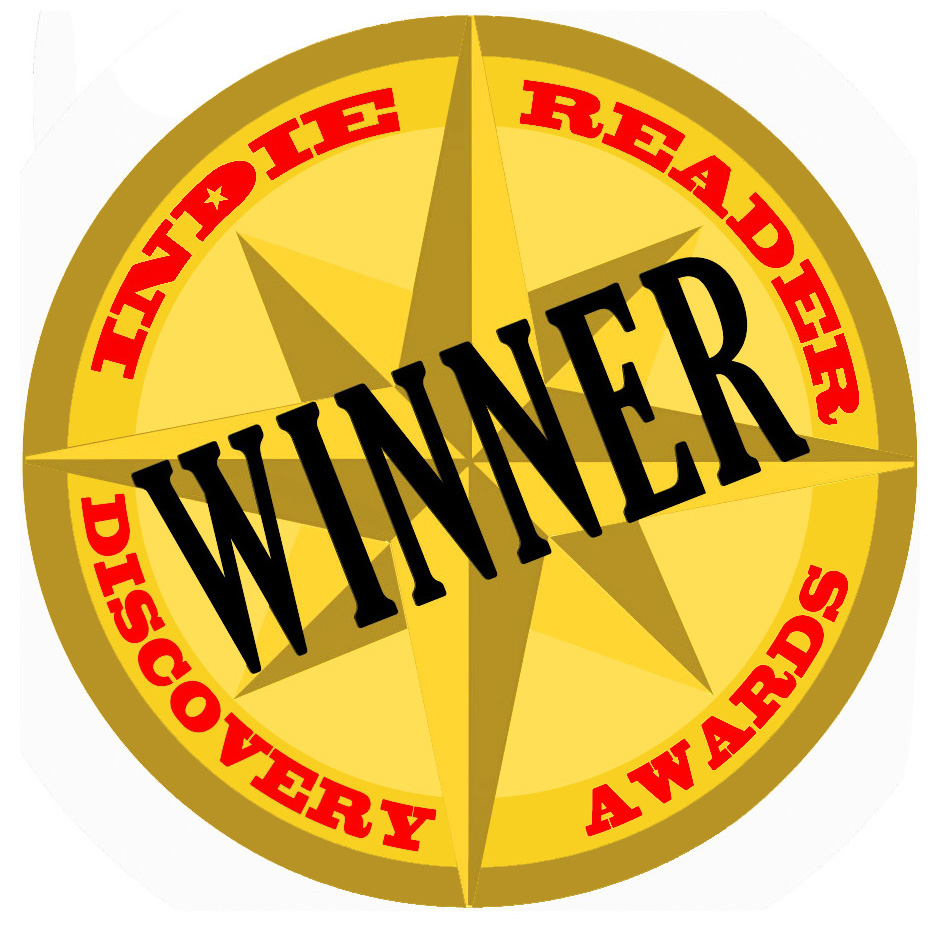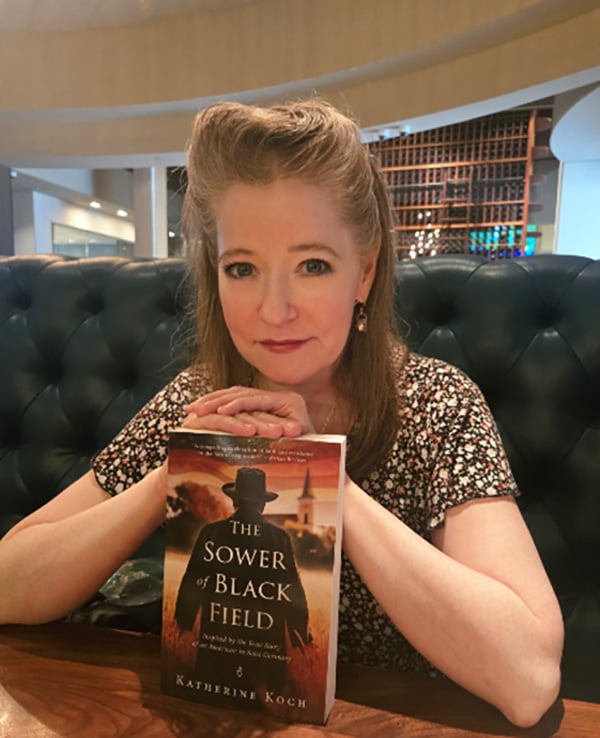
The Sower of Black Field: Inspired by the True Story of an American in Nazi Germany was the winner in the Religion (Fiction) category of the 2025 IndieReader Discovery Awards, where undiscovered talent meets people with the power to make a difference.
Following find an interview with author Katherine Koch.
I am so proud to see The Sower of Black Field as the category winner in religious fiction in the 2025 Indie Reader Discovery Awards! The Sower is my debut novel, and this is quite an honor. Thank you!
What is the name of the book and when was it published?
The Sower of Black Field: Inspired by the True Story of an American in Nazi Germany. It was published in April 2024.
What’s the book’s first line?
The car, a black and silver-trimmed Mercedes, rumbled out of the hills like thunder from a cloudless sky.
What’s the book about? Give us the “pitch.”
During the Third Reich, millions of Germans pledged allegiance to Adolf Hitler. In the Bavarian town of Schwarzenfeld, they followed an American citizen.
This American is Fr. Viktor Koch, a missionary who witnesses the rise and fall of Nazi Germany behind enemy lines. His ministry and American values dramatically change the culture of this remote farm town.
In April 1945, American liberators discover an SS atrocity on Schwarzenfeld’s borders and mistakenly blame the town. Enraged by the horror, the American commander issues a devastating ultimatum to the locals—give 140 dead a decent burial in 24 hours, or every German man between 16 and 60 will be executed in retaliation. Fr. Viktor confronts his countrymen and defends his German flock, proclaiming their innocence. Can he convince the Americans of the villagers’ humanity, or will the legacy of Nazi atrocities condemn them all?
What inspired you to write the book? A particular person? An event?
The event I’ve just described is a meticulously researched true story, one supported by a published, peer-reviewed historical journal paper. Also, this is a story from my family history. Fr. Viktor is my paternal grandfather’s uncle (my father’s father’s father’s brother).
What’s the most distinctive thing about the main character? Who-real or fictional-would you say the character reminds you of?
Fr. Viktor was not your typical mild-mannered, soft-spoken priest. Historically, his personality ran the gamut. He is warm, empathetic, and fatherly to parishioners, yet he has a commanding bearing and a steel backbone. He has to stare down Nazis and stand toe to toe with an American commander who has just seen horrors beyond imagination and feels justified in committing a massacre of his own. Fr. Viktor has an abiding faith in God, and yet he struggles with a conflict between holy mission and heritage. Why does he feel so deeply rooted in the Third Reich? Is he following a higher plan, or being led astray by free will? Is he following the will of God, or the mystic compulsion of his own German blood? That was fun to write!
Who does he remind me of? That’s a tough one. Fr. Viktor was unique, and that’s part of what compelled me to write about him.
What’s the main reason someone should really read this book?
Even if the category of this book is religious fiction, the message beating at its heart transcends religion. Fr. Viktor’s order—the Passionists—believe that suffering is the great and terrible equalizer of humanity. The pains and trials of the human condition connect us all, regardless of nation, race, country, language, or creed. Even readers who happen to be agnostic—or atheist—have to agree with the profound logic of that statement.
The Passionists connect our universal pain to the agony of Christ on the Cross, elevating the combined sorrows of the living universe into the suffering of the Passion. They also believe that, when we reach out to each other in compassion and healing, we are agents of a higher power—whether we acknowledge it or not. That message transformed a backwater farm town in Nazi Germany. I know it will profoundly affect readers as well—regardless of their own religious beliefs.
If they made your book into a movie, who would you like to see play the main character(s)?
This is my favorite question. Honestly, what author hasn’t dreamed about this?
If we’re searching for an actor who resembles the historical Fr. Viktor, Daniel Craig (of James Bond fame) is a terrific choice—ears, eyes, hairline, and all. In Fr. Viktor’s younger years they could have been twins. That’s fun to think about, because Craig’s filmography would lend instant credibility to a priest undaunted by Nazis, and one with enough gravitas to make German followers say “yes, Pater!” without hesitation.
This might be a tough role to cast because it should ideally have an actor from the USA (Craig is Welsh) willing to perform the lion’s share of his lines in American-accented German. Otherwise, it makes no sense for German characters to speak English and suddenly fail to understand the Americans when they arrive on the scene. The language barrier is a crucial reason why the Schwarzenfelders depend upon the bilingual Fr. Viktor during story’s third-act crisis. Some tantalizing possibilities who (according to Google) speak fluent German—Tom Hanks, Michael Fassbender, and Brad Pitt.
While The Sower is Fr. Viktor’s story, properly casting the opposite pole of the book—Nazi welfare worker Wilhelm Seiz—is vital. Seiz is good and evil, light and dark, conviction and doubt, empathy and treachery, illuminating all the contradictions of the time period. To Fr. Viktor, he is heaven’s highest virtue—charity—with a swastika on his sleeve, and the conflict is unbearable. There are moments where Seiz is like a coin flipping end over end, holding our hero (and the reader) in breathless suspense as they wait to see which side lands face-up. Will Seiz exacerbate a crisis in favor of the Reich, or move to resolve it? It takes an actor of nuance to convey such profound forces striving within a single character. I have envisioned only one German actor in that role—August Diehl (think of “King Kong” in the bar scene of Quentin Tarantino’s Inglourious Basterds). He has the face of a charity worker and a stare that can freeze you solid in a second. In my mind, he’s been Seiz since I wrote page one. I’ve been a fan since Der Neunte Tag (2005).
When did you first decide to become an author?
The moment I realized I could spin a good yarn and hold people rapt with attention.
What do you do for work when you’re not writing?
During the day I work as a professional web administrator, digital marketing specialist, and graphic designer. By night I’m an independent scholar who loves writing historical fiction. How much more diverse can you get?
What’s the best and the hardest part of being an indie?
It’s been a long journey, and I’m sure every indie author can relate. I fought well over a decade to get published traditionally. After years of rejection, I realized that the book I was promoting—The Sower of Black Field—belonged to a new subgenre that did not fit into existing markets: Catholic historical fiction. Indie publishing was the only way to go.
The best part is that you have complete control of your work. I was able to write the story exactly as I saw fit. For someone like me—a web developer, marketer, and artist—I was able to design my cover and book interior, do my own typesetting in InDesign, write and produce my own book trailer, and so much more. The resulting product was shaped entirely by my own vision. I know it’s better for it.
The hardest part of being an Indie? Not only do you have to build your own ship and chart your own course, but you have to create your own wind to fill the sails! It’s hard. Finding a good partner to help you through it is even harder. I went through two indie publishing and promotion agencies (one that shuttered its doors after we finished the typesetting, and another that was so large, I was virtually ignored) before finding a ‘goldilocks’ agency that was just right, and helped me make The Sower commercially successful.
Which writer, living or dead, do you most admire?
Without question, Michael Shaara. In the introduction to his Civil War novel, The Killer Angels, Shaara said that reading the cold history was not enough. He wanted to know what it was like to be there, what the weather was like, what men’s faces looked like. In order to live it, he had to write it. I come from that same literary lineage.
What I love most about Shaara’s work is his stream-of-consciousness writing. He doesn’t present you with dry facts. He offers characters who are ruminating over events in real time, and then suddenly mentions a detail from the environment. You abruptly realize that you’re immersed in the mind of a historical figure who is moving through three-dimensional space, and it feels like you’re there. He taps into all of the senses and brings history to life. I love that!
